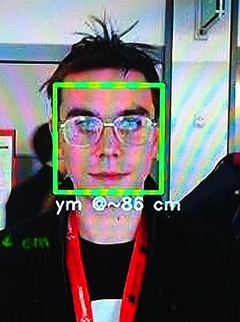 Previous Lift talks on algorithms and how they influence our lives have had an impressive impact: First there was Kevin Slavin's speech at Lift11 on "Those Alorithms that govern our lives", illustrating how algorithms are shaking up society and more specifically the whole finance industry and even changing the real estate market in New York City. Kevin's brilliant presentation still stirs discussions up to this very day and brought him an invitation to TED Global a few months after his speech at Lift.
Previous Lift talks on algorithms and how they influence our lives have had an impressive impact: First there was Kevin Slavin's speech at Lift11 on "Those Alorithms that govern our lives", illustrating how algorithms are shaking up society and more specifically the whole finance industry and even changing the real estate market in New York City. Kevin's brilliant presentation still stirs discussions up to this very day and brought him an invitation to TED Global a few months after his speech at Lift.
One year later we invited artist James Bridle over to talk about literature and storytelling in a digital world. In his captivating speech James shared with us his perspective about the construction of knowledge and his collaborations with robots. Although you might say the talk was "pretty out there :)", it was highly appreciated and top ranked among Lift12 participants' favorite talks. The discussion around New Aestethics, which James had started a bit earlier in 2011, became one of the top themes of digital culture in 2012, with people like sci-fi author Bruce Sterling writing about it and conferences like South by Southwest covering it in panels after Lift12.
For Lift14, Lift co-founder Nicolas Nova thought it was time to do a whole session about algorithms - and we all agreed.
How algorithms will change cultural production
Expect to be stimulated again: we have invited writer Joanne McNeil, previously editor at Rhizome.org, to talk about generative art and the role of algorithms in new media art. The leading game scholar Ian Bogost will explore the influence in video games and "hacker" Dan W will tell us about things like emotion recognition algorithms he makes to playfully explore technology. Frederic Kaplan will be back for a short talk about the link between algorithms and exploring history, based on the example of the super exciting "Venice Time Machine"-project at EPFL.
We can't wait to explore with you more in-depth the consequences of the increasing role of algorithms in cultural production, to analyze how the discreet role of computer code changes the way music, texts or videos are created. And of course find out if Twitterbots actually can be funny..
--
A big thank you to our partner at Pro Helvetia, the Swiss Arts Council, and their brandnew program "Mobile. In Touch with Digital Creation" for supporting us in making this session happen!


